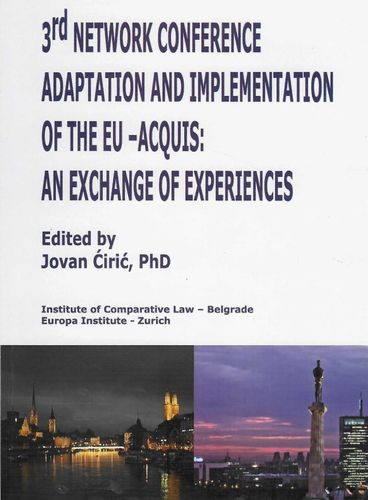
We kindly inform you that, as long as the subject affiliation of our 300.000+ articles is in progress, you might get unsufficient or no results on your third level or second level search. In this case, please broaden your search criteria.

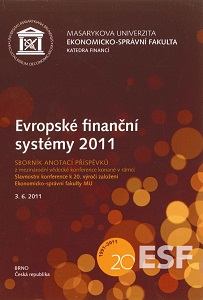
The contribution shows the existence of environmental policy and subsequently of the environmental tax reform, respectively. Ecological tax reform. Environmental tax reform is one of the relatively new financial instruments for environmental policy, ie. market - oriented tools.
More...
Autorica polazi od pojma prirode, njegovog korištenja u svakodnevnom, političkom i društvenom životu te analizira međusobna prožimanja prirode i ljudi. Osim na svakodnevnom polju, prožimanja se uočavaju kroz jezik, rituale, bliskosti. Kritizira racionalnu znanost koja je poslužila kao uvod u kolonijalizam, rasizam i opresiju nad prirodom.
More...
Ovaj esej nudi socijalističku feminističku postkolonijalnu interpretaciju pojma antropocen kakav se koristi u novijoj ekokritici. U osporavanju krutoga pozicioniranja čovječanstva nad Prirodom, rad se oslanja na marksističku psihoanalitičku teoriju ne–identiteta Theodora Adorna (1973) i Julije Kristeve (1973, 1977, 1978). Donoseći ekofeministički doprinos novom području ekoloških humanističkih znanosti, kritički se bavi perspektivom istaknutog američkog znanstvenika Timothyja Mortona (2012). Uz to, sugerira se da socijalistička feministička postkolonijalna politika ekofeminizma dovodi u pitanje neizbježnu univerzalnost antropocena, gradeći Zemljinu demokraciju (Earth Democracy) epistemologijama skrbi (epistemologies of care). Zaključeno je da razumijevanje pojma antropocen, fenomena koji je duboko rodan, zahtijeva više od razmišljanja u »dubinskom geološkom vremenu« (deep geological time). U konačnici, svaka ekološka svijest zahtijevat će sposobnost razmišljanja u »dubinskom libidinalnom vremenu« (deep libidinal time).
More...
Although the »women’s issue« has been founded as a political issue several decades ago, along with the development of »new wave« feminism, or neo–feminism, that brought to changes in the approach within the whole series of social issues, only with the emergence of »the green movement« and forwarding of »green« issues as political »women issues« as well as environmental issues, have they assumed a new importance within ecofeminist alternative groups. Ecofeminism encompasses different approaches, from liberal to ecocentric ecofeminism groups. In the course of numerous discussions between ecofeminist and feminist groups and their standpoint, there are also other intrinsic environmental groups and their standpoints, from which most prominent group representing deep ecology viewpoints, with which ecofeminist orientations are frequently in disagreement. Regardless of, however, certain disagreements within certain ecofeminist groups and their approaches, some of which are even useless or derogatory for (eco)feminism, as well as conflicts with the deep ecology, from the standpoint of social ecology it is important to take into account and take into the consideration all these (eco) )feminist standpoints, because they direct us to the situation where we should move beyond faulty dualism of the opinion model that characterizes West social and philosophical tradition, and towards which women are inferior to men, nature towards culture, emotions towards reason and body towards mind, under the condition that we want to achieve environmentally harmonious living, integrating nature with culture into an organic eco–cultural whole.
More...
Thanks to the feminist movement, women’s civic activism within the environmental movement, and the development of the theoretical discourse of feminism, polyphony developed in relation to contemporary environmental problems, known as ecofeminism or environmental feminism. The ecofeminist ethics is promoted here, based on partnership in its nature, liberated from the dualism of Western intellectual thought and gender bias on woman and nature. The social ecofeminism puts the thesis on the connection between woman and nature in the context of socially constructed patriarchal society, oppression and domination over woman, reinforcing the feminist critique of the patriarchal society, social dominations and hierarchies. It also accepts the basic principle of social ecology according to which domination naturally comes out of man’s domination over man, thus being the primary goal in society. Social ecofeminism connects the domination of woman and nature with race and class domination, and supports a radical opposition to the existing social institutions founded in this domination system. The problem of human inequality and affirmation of social justice is now being regenerated through social drifts of ecofeminism that connects the vision of gender, class, race and liberation of all those who do not fit the common social normality norms with affirmation of degraded and inferior space of in human nature.
More...
The mistreatment of the more–than–human world, that is–nature, has propelled the emergence of Environmentalism initially as a conceptual orientation offering ecological ideas of preservation and conservation of nature as central to the survival of the human species. Environmentalism since has evolved into different directions as a more integrated view of an existing interaction between nature, society and politics. This paper will therefore challenge the traditional stance that separated the natural from the socio–political systems. The aim is to stimulate further philosophical discourse on the current hesitation about the existence of a common political language between the humans and the more–than–human world. The method used therefore is review and critical analysis of both traditional and contemporary authors from different stages of Environmentalism, with special emphasis on Ecofeminist authors. Finally, the author of this paper offers a plausible solution to the current dilemma by claiming that there is a political solidarity with the more–than–human world when struggling against ecologically–opressive state of affairs.
More...
This paper addresses the problem of representation of climate change in literature, through the prism of environmental and climate justice as movements emerging from certain limitations of climate sciences that are approaching climate change from a political and ethical perspective. The movements of environmental and climate justice are based on the assumption that world’s most politically and economically powerful nations function in a way that enables them to maintain their own high consumption levels while shifting the ecological burdens onto less developed countries. In other words, those who contribute the least to the pollution of the environment will be affected the most by the ecological crisis. In the context of climate change, injustice is manifested within marginalised groups, including women who are particularly vulnerable to the consequences of environmental pollution and ecological catastrophes. Although these movements are politically oriented, they can also be seen as cultural movements focused on the questions of ideology and representation, as shown in contemporary literature and literary criticism (Sze 2002). In this sense, the common place in contemporary theory is that literary texts could be useful for establishing communication between climate science and general public (Ghosh 2016; Mehnert 2016; Trexler 2015). Following this assumption, the text will analyze Helen Simpsons’ Diary of an Interesting Year as an example of how contemporary literary production can effectively present abstract and hardly visible climate issues and thus contribute to climate justice discussions.
More...
Review of: Andrija Golubović - Pamela Odih, Watersheds in Marxist Ecofeminism. Newcastle upon Tyne, UK: Cambridge Scholars Publishing. 2014. 390 str
More...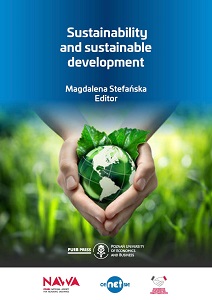
The aim of this chapter is to describe various determinants of sustainable development in the contemporary world, including those most important, such as globalisation, climate change, poverty versus unlimited consumption as well as limited exhausted access to resources—with regard to the goals of sustainable development. The other objective is to give the reader essential resources covering the topic from various viewpoints and a starting point for discussions about sustainability.
More...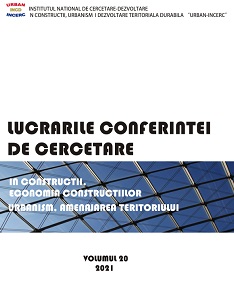
The aim of the research is to identify how the participation of local communities influences the planning process of green infrastructure both at urban and regional level. For that, the existing connections between concepts such as participation, civil society, participatory planning/co-participation - on one side - and the urban planning process / the planning of urban green space and green infrastructures - on the other side - were researched. The actors of participatory urban planning were identified, especially the groups of local actors, involved in green infrastructure planning, as well as the new type of citizen participation through forms of collective action and protests aimed at city development and its local environmental issues. The types of approaches and barriers that occur in participatory planning, and how the community can get involved in the design and planning of ecological networks were presented. The channels through which the inhabitants of the city can get involved in urban design in general and in the case of urban green infrastructure, in particular, with the help of new technologies and online applications, such as VGI, were also researched. One of the conclusions is that participatory planning can improve the quality of urban planning through different approaches. However, regarding the involvement of the community and various social groups in the planning of green infrastructure, the results show, surprisingly, that it is recommended that designers consider the participation of certain stakeholders and a strategy for their participation. Another conclusion is that the involvement of citizens in the planning of urban projects is facilitated by new technologies and online applications and that data from social media give citizens the opportunity to get more involved to protect the environment in which they live and therefore these data can thus be used in a transparent and democratic participatory process.
More...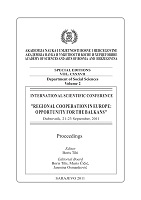
Climate changes have been taking their share in last 30 years all over the world. Loss of soil caused by frequent flooding and soil erosion has resulted in increasing number of hungry people left without roof over their heads. Lack of fresh water is considered to be key issue nowadays. Conventional energetic resources are being lowered daily. All those facts were confirmed by the Millennium Ecosystem Assessment of our planet. Ecological crisis is getting worse every day without possibility to get out of it. This imposes emergent and effective ecologization of human society on global scale. First of all, it is necessary to conduct ecologization within economic sector, which is obligatory task to developed, less developed countries and especially to the countries going through socio-economic transition. All investments should be planned and analyzed on ecological basis, taking into account rules and laws of the European Union (EU). The investment is considered to be ecologically acceptable if it applies waste-less technologies with low energy input and products that are environmental friendly, whereby the Pollution Prevention should be a dominant approach. This relates especially to forestry and wood-industry which is basic economy sector in Western Balkan countries. Major cost savings could be done within this sector, which would cut down our needs after woods and new sources of fresh water. The most present questions in the Western Balkan countries, especially in BiH, questions that mainly correspond with serious environmental disturbances and climate changes, are those of hydro energetic sector. Without any kind of sever previous ecological study, there are being destroyed even last streams by construction of flow-through hydroelectric power plants, and building of high dams for large hydroelectric power plants. Some large and ecologically questionable investments are planned within Adriatic equator (territory of Bosnia and Herzegovina). Besides, there is yet to be solved route of Vc-corridor in its most delicate shares. Water is being re-directed from one watershed into another. Irreverence of both ecological laws and demands jeopardizes the biodiversity, specific habitats, especially endemic forms of life. This imposes need after more distinct stand of the EU toward all countries seeking to become its member on achieving and implementation of required ecological obligations in each aspect. In other words, there should not be new investment done unless there is a visible ecological base for it. Every single Euro has to be additionally „turned into green“. Likewise USAID (United States Agency for International Development) has done it through its after-war recovery programs in BiH achieving the outstanding results. As a first steps in achieving of sustainability is ecologization of educational system.
More...
This article highlights the role and significance of administrative ecology and its relationship with artificial intelligence. The ecological approach in public administration focuses attention on the dynamic relationship between the system of public administration and its environment: – physical, cultural, historical, technological, economic, legal and political, as well as on a good understanding of changes in the administrative system through the ecological aspect, considering it through the ideas and studies of John M. Gauss and Fred Riggs. Artificial intelligence (AI), with all its challenges and dangers, can lead to a wave of changes in society and public policies, especially with all that the fourth industrial revolution brings. The question arises: – How ready are we to apply all this in the principles of good governance and building policies for the application of artificial intelligence in the operation of the administration?
More...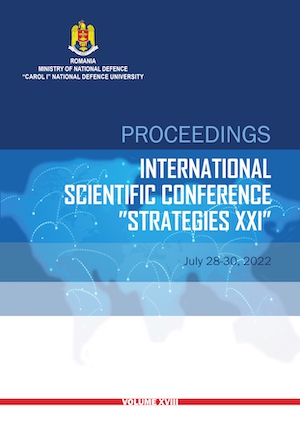
The main purpose of this paper is to improve public awareness of the influence campaigns carried out in the Romanian public space, via traditional and internet media that are at odds with national interests. In the context of an ongoing Russian disinformation campaign that frequently spreads disinformation among civil society members and, more concerning, generates hostility between the Romanian citizens and their officials, the most common Russian narratives used in Romania are analyzed, and their misleading aspects are revealed. The paper also covers the resilience approach at national level, as well as at the EU and NATO levels, in order to better understand the instruments and procedures available for lowering risks and managing threats affecting the Romanian society. In light of the current situation in Ukraine, the study presents a series of conclusions regarding how the dissemination of misleading narratives influenced the information environment in Romania.
More...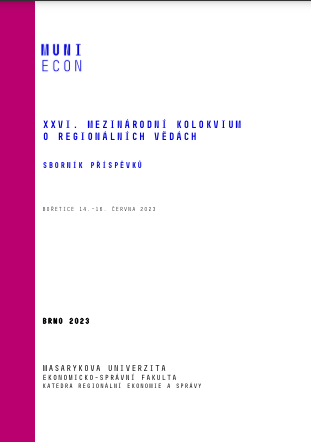
Provisioning ecosystem services are directly related to people's living standards, and their degradation reduces the quality of human well-being. Evaluation and mapping the individual ecosystem services is one of the main objectives of the Biodiversity Strategy 2030 within the EU. The aim of the paper is to provide an alternative perspective on the evaluation and assessment of the potential of natural capital to provide provisioning ecosystem services in four model regions of the Slovak Republic with diverse natural and geographical characteristics. The evaluation was based on the cartographic layer of ecosystems in model districts and a modified matrix of ecosystem services. The Brezno and Michalovce regions had a significantly higher point and monetary value of the potential of the region's natural capital to provide provisioning ecosystem services.
More...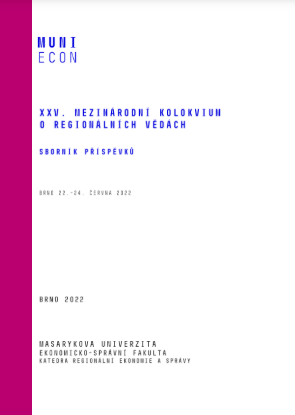
The transport sector is one of the largest sources of greenhouse gas emissions, making a significant contribution to climate change. As the tourism sector is linked to movement in space and the choice of transport mode, it is also affected by the issue of sustainability. The paper aims to evaluate what factors influence the choice of sustainable transport mode on the way to the destination and determine the importance of environmental attitudes of tourism participants in their decision-making process. Similarly, the connection between sustainable behaviour in the home environment and the willingness to pay extra for a greener transport mode is investigated. A questionnaire was compiled based on relevant scientific literature. It was distributed electronically in the period October– November 2021, primarily among respondents in the age group of 18–35 years, which is widely discussed in the scientific literature. In a sample of 255 respondents, respondents with a greener mindset gave higher importance to the environmental impact of the transport mode and were willing to pay more for greener mode. Although the plane was one of the most widely used modes, there was a larger proportion in a more sustainable mode of transport among more environmentally friendly respondents.
More...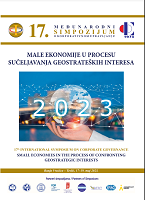
These days the global economy and humanity as a whole are in deep and permanent regression. Due to continuous making and widening of imbalances, the economy fell in a confluence of crises (cascading crisis, rolling crisis or a crisis in the system of crises). Along with the economy, the planet has fallen in a serious trap of dying slowly but surely. Finding systemic solutions to growing imbalances both in the economy and the planet as a whole is the imperative of our time. The so-called “green transition” is a big idea to mitigate current crisis and make a recovery. From an economic perspective, it is a way to nullify the existing structural imbalances of economic neoliberalism and misconceptions of related reactive policies, as well as a platform backing sustainable and inclusive economic growth in balance with the limits of nature. This approach is particularly suitable for developing economies that aspire to catch up with the developed world through new industrialization. In this paper, we attempt to concentrate, among dozens of complex issues concerning the transition from an old to a new economic order, on those solutions pertaining to the economic system adjustments in line with the natural limits in a landlocked, small, open, and developing national economy such as Serbia. The great majority of economics scholars have agreed upon the root causes of the current economic crisis as well as the key assumptions regarding problem solutions. In defining our proposals, despite different angles, we intend to integrate the most effective elements of a widely accepted but outside-the-box view. It is not certain for how long the current crisis will last. Some crisis management actions are already being implemented. Unfortunately, it is not enough. To reverse the regression trend, four questions need to be answered. How to adjust local actions to global priorities? What would be a feasible and effective growth model and conceptual platform of economic policy for the crisis mitigation along with the subsequent revival and set-up of a sustainable and inclusive economy? How to coordinate transformative activities in the right direction at the local level? How to weight different instruments to finance the transition from a new normal to a better normal, particularly from the perspective of the goal function and performance measurement system within basic economic agents? To answer the previous questions, the economic theory and policy should abandon the nexus of neoliberal rules, in both microeconomics and macroeconomics, and adopt a new nexus of economic rules, capable of explaining the real behavior of economic agents, sometimes irrational and inconsistent as explained by behavioral economics, but always under and “universal connectivity” as a dominant free good in the post-industrial age, as well as under the impact of natural limits. The above requires the implementation of the circular model of growth and heterodox economic policy platform. Following the previous line of reasoning, the material is organized in four parts, besides Introduction and Conclusion. The Part 1 discusses unsustainability of the current growth model and related economic policy platform and underlines the necessity for a truly radical paradigm change to mitigate the structural crisis and to set up a new conceptual platform for sustainable and inclusive growth. The Part 2 is focused on the reasons why reactive economic policies failed during a structural crisis. The Part 3 proposes the green transition as a breakthrough idea for radical system change. The Part 4 analyzes the macroeconomic performance and development opportunities of Serbia as prerequisites for the transition toward a greener economy.
More...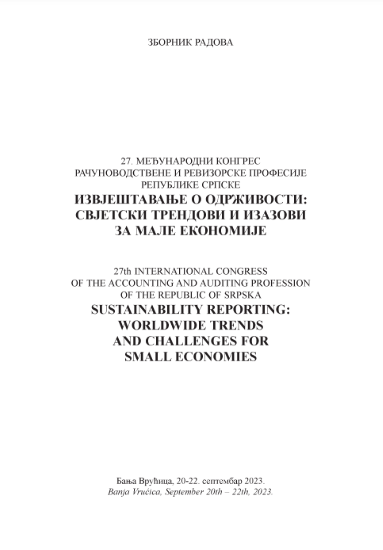
The green transition has clearly shown that EU member states are making economic progress, but that the gap between countries and regions is increasing. Similar economic opportunities and opportunities across the region are "key to the functioning and legitimacy of the Union. Therefore, the reduction of differences and the pursuit of economic, social and territorial cohesion - as stated in the Treaty on Functioning of the European Union (Art. 174) are the guiding principles for the development of EU economic policy. Europe is going through a double transition of digitalization and decarbonization that is drastically changing the way how the economy works. The necessary adjustments vary greatly between activities and European regions that differ in their economic structures. Local assets such as internet availability, greenhouse gas intensity and the availability of highly skilled labour, as well as social structure play a key role in shaping the economic structure. The activities that a particular region is specialized for, indicate its potential to benefit from digital and green transitions. Regions specialized in product desigp or using digital and green solutions -will greatly benefit from both of these transitions. Regions with a strong reliance on agricultural activities must adapt in a different way than regions whose economies are dominated by services that require specific knowledge or highly technologically intensive manufacturing industries.. The structural changes resulting from the green transition could turn the European economic landscape upside down and thus reshape economic cohesion in the EU. Also, regions that are prosperous today may lose ground in the future., 'while less developed regions may take advantage of previously unused potential and grow beyond expectations during this double transition. As a result, existing disparities may intensify, disappear or be supplemented by new ones. In any case, new challenges arise for the stability and unity of the European Union.
More...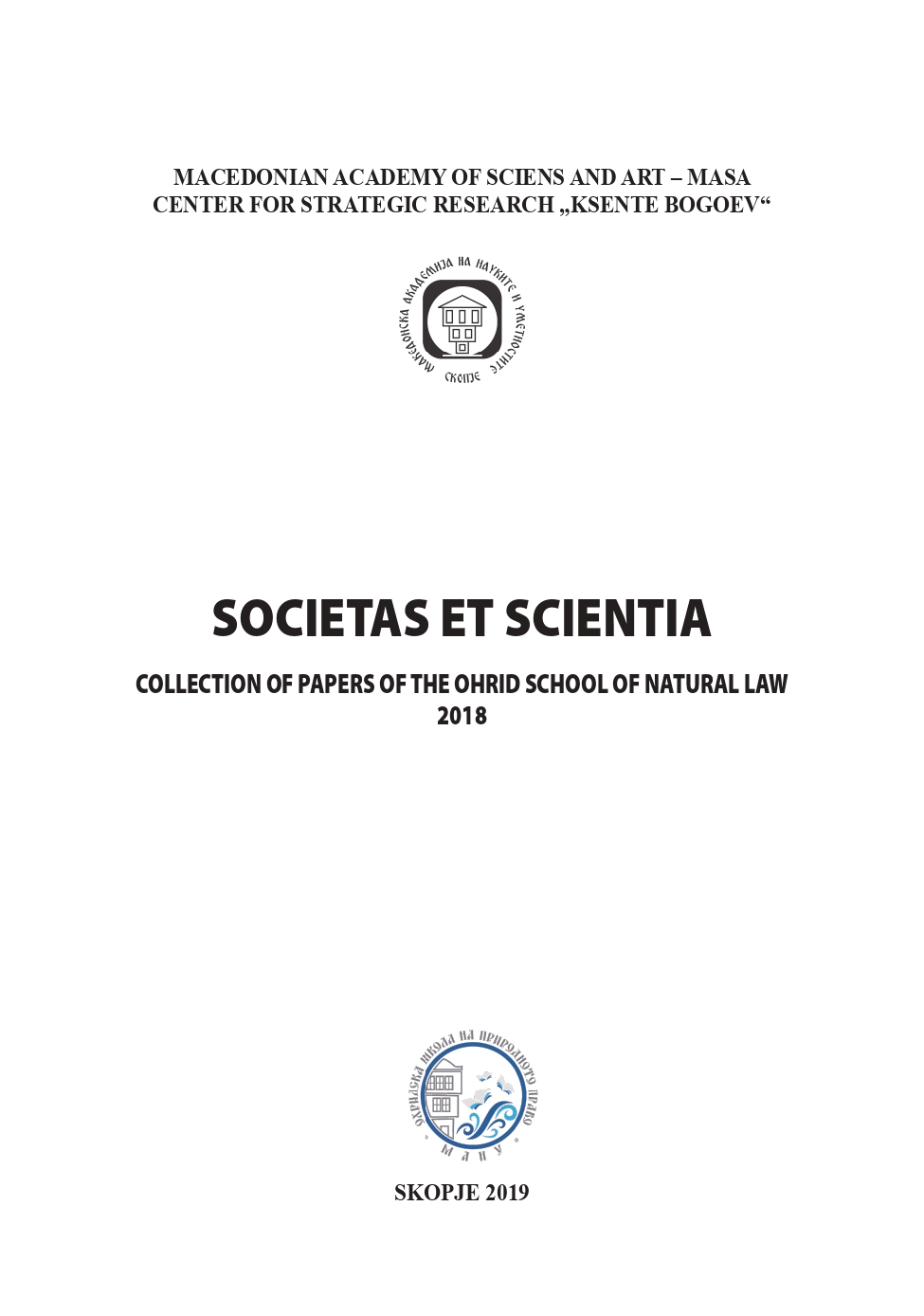
Starting from the dilemma contained in the title of the paper, from all that has been elaborarted, the conclusion is that pollution is a reality, but a healthy environment and effective judicial protection are still just a myth. The absence of a comprehensive legally binding instrument for environmental protection at the global level, which greatly contributes to non-compliance with legislation at the state level, underdeveloped monitoring and control mechanisms, directly leads to a lack of accountability of the states. Efforts to overcome many open issues and dilemmas have led some countries to introduce specific legislation on environmental liability, such as the German Environmental Liability Act (Umwelthaftungsgesetz) of 1990. The current situation in North Macedonia is devastating and it is quite justified for citizens or citizens’ associations to start submitting applications to the ECtHR in Strasbourg. Judicial protection will not be possible until the competencies are differentiated, which is necessary due to the constitutional nature of the right to a healthy environment. Different interpretations lead to the conclusion that it is necessary to have a model of Environmental lawsuit as action popularis for both the prevention of presumed damage and the damage already incurred, with pre-clarified criteria for causality and the evidence to be attached. Its introduction will also facilitate the plaintiffs in determining the merits of the lawsuit. The environmental lawsuit should be located in the civil court within the disputes over the fundamental rights and obligations of man and citizen, which will seek to establish a violation of law, not to establish facts.
More...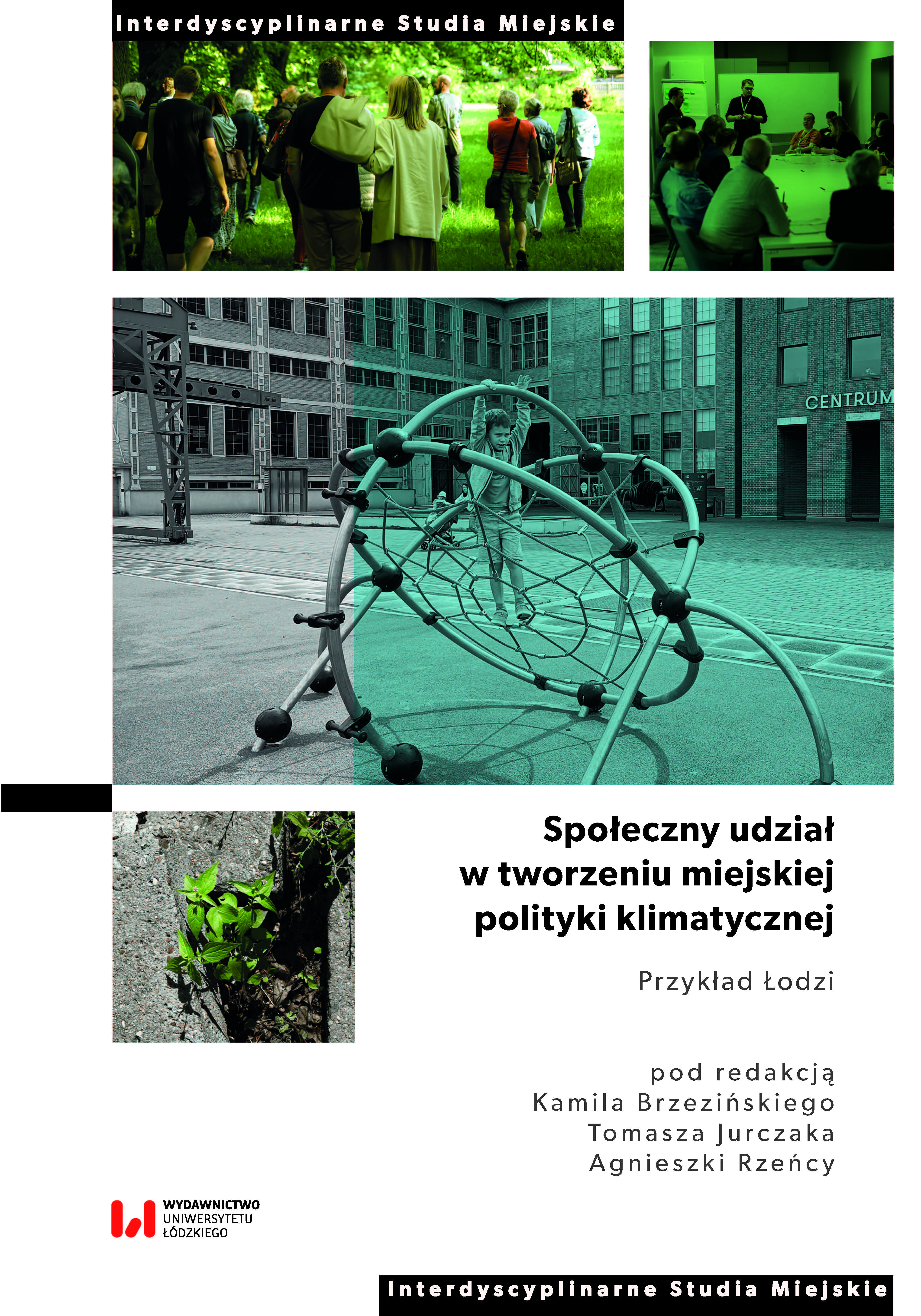
Cities responsible for over 70% of global greenhouse gas (GHG) emissions are also areas with a high mitigation potential. The search for specific solutions enabling a significant reduction of GHG emissions in urban areas is therefore of key importance in the global pro-climate policy. One of the tools for this purpose may be discussions within the citizens’ assembly. The developed solutions, in order to be effective, must be consistent with the current state of knowledge. Therefore, the undertaken study provides basic information on the greenhouse effect and the role of individual greenhouse gases, methods for determining emissions from the city area and the characteristics of the urban climate. Particular attention was paid to the dangers resulting from the insufficiently thorough interpretation of the results obtained with the use of various GHG inventory methods. In terms of urban climate, the differences between the classic urban heat island regarding the air temperature in the city and the surface temperature obtained from satellite imagery were highlighted. The impact of the city on the precipitation and wind field was also characterized. Finally, urban strategies for mitigating climate change were discussed.
More...